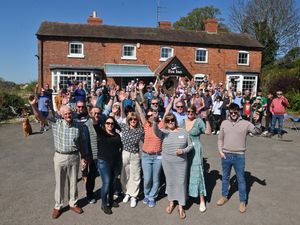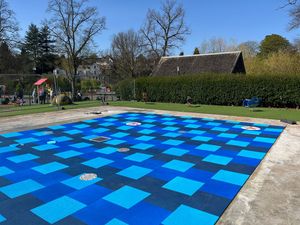TV review: Skint
Modern life is rubbish: smack-heads and shoplifters, window cleaners and prostitutes, money lenders and car park casinos. The mean streets of Scunthorpe, featured in Channel 4's Skint, were a modern day Dante's Inferno.

Tracey started the day with a trip to the pawn shop. Her gold rings went for fifty quid and the notes went straight to her dealer. She'd bought a bag of brown yesterday and had to pay him back or get a slap.
On other days, when she avoided the police cells, she worked street corners, earning what she could to feed her £90-a-day habit. And when all else failed, she nicked perfume from the local shopping centre and sold it for half the price.
Well, she has to make a living, doesn't she? Jail was a welcome break – three meals a day, shower, telly and the occasional bag of weed.
Gail had to switch her lights on during the day because her windows were boarded up. The workmen from the housing association came round because the windows had been smashed.
Her daughter had been scrapping, again, so the local heavies came round to teach her a lesson. Bang.
Skint showed the grim reality of 'Cameron's Broken Britain.'
Methadone programmes and kids being taken into care. Gambling in the park and mothers worried that their daughter wouldn't make it to their 18th birthday. They're not rioting in Scunthorpe. They're too stoned to fight, too busy stealing from JD Sports to pay for a bag of brown.
There were seeds of hope in the garden of despair. 'How much does mommy love ya?,' one debt-ridden mother asked her child as she put it to bed. 'A million times more than all the stars in the world.' It was poignant and tender.
Skint made for compelling viewing. It was Britain on the edge: real, visceral and compelling. The mean streets of Scunny might as well have been the estates of Tipton or Telford, of Walsall or Whitchurch.
The tone was perfect. Unsympathetic and devoid of saccharine, it painted as true a portrait of contemporary Britain as you are likely to find. Riven with journalistic integrity, the level of access that the camera crew obtained was extraordinary. It was a programme of great pathos. Hearts were broken, dreams were shattered, lives were ruined and rebuilt.
There were salt-of-the-earth characters, settling down on their sofas with their six kids, wrapping them in love. Elsewhere, there were smack-heads, weed heads and dole dossers; all being exploited by double-bubble money lenders.
Skint was a programme that showed what happens when hope is gone. It was non-judgemental and simply reported the facts. It illuminated the reasons why people made tough choices, why lives spiral out of control. It shone a light on the reality of life on a sink estate in 21st century Britain. It was shameless in its pursuit of the truth.
Skint went beyond being merely compelling. It was TV at its best. A fearless and unflinching social commentary, a daring exposition with a brutal narrative.
"They've taken my kids, what have I got left to live for? When they've taken all you've got, there's no point," said one woman, reflecting on a lifestyle of drugs, shoplifting and being on the game.
It was hard not to feel some sympathy for a life gone wrong. The genius of Skint was that it dared to delve a little deeper. It didn't just present the outcomes, it presented the reasons. At times. those were harrowing.
Andy Richardson





